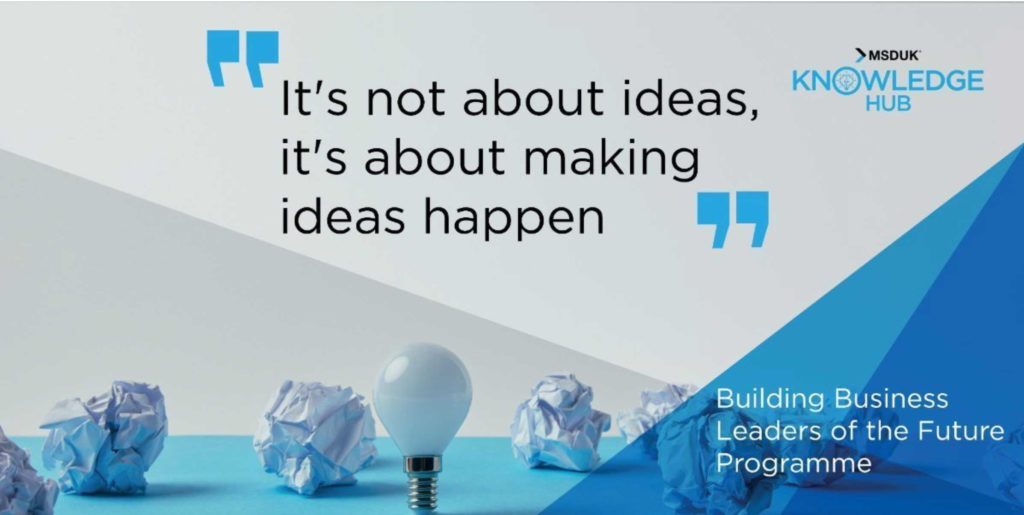
We recently held the first workshop of the Building Business Leaders of the Future program, in conjunction with the Aston Business School, sponsored by Agile One.
Attended by our first cohort of Ethnic Minority Businesses (EMBs), the workshop focused on personal branding. The workshop was delivered by industry professionals and was designed to give entrepreneurs and SMEs a clear understanding of how they can develop their brand to improve their business.
Branding is essential to any business organisation. It provides a narrative for current, potential and future consumers. But a brand is not just a logo — it’s much more than that. Branding is intrinsically connected with an organisation’s reputation.
We are all familiar with major brands and our consumer habits are shaped by how we relate to those brands through the power of association. We don’t just buy a product — we also buy into the reputation and story behind the brand.
As consumers, we are loyal because we have an emotional connection to our favourite brands. The most successful brands live in our heads. An obvious recent example is the many people who queue in the early hours of the morning to buy the latest Apple handset.
Once that connection is established, getting those consumers to switch to different mobile phone brands would be very hard, barring some ‘apocalyptic event’ or a grave misjudgement on Apple’s part.
Large organisations are able to spend a lot of resources on the right segmentation, the right channels, the right digital, the right communications, the right, etc, etc. (Pardon the jargon and the overuse of the word ‘right’!) But entrepreneurs and SMEs have limited resources.
Here are some of the big takeaways from the Building Businesses of the Future workshop on branding.
To make a brand attractive, your offer has to have appeal. A value proposition tells potential clients how what you do makes their lives better, and why they should do business with you rather than your competitors.
But for a value proposition to be appealing, you need to make the benefits clear from the outset. A lot of businesses fail to highlight their value proposition properly because they assume that clients already understand their offer. Other businesses use meaningless slogans that confuse rather than explain.
To make sure consumers clearly understand the brand and value proposition, entrepreneurs need to show:
Creating a successful brand is not easy. It takes a lot of work to make your brand stand out. By that, I don’t mean just having the biggest and brightest logo. As mentioned above, a brand is much more than that.
A successful brand can transform a market or be a barrier to market for competitors. As an entrepreneur or small business owner, achieving brand recognition in your field is important for the future of your business.
As many experts point out, the most successful brands also perform well financially, meaning your brand reputation can put more money in your pocket.
Most entrepreneurs are the faces of their own companies. In fact, they often are the company, as it is their ideas, passion and hard work that drive the business forward.
The business is an extension of the person behind it. Think of the intrinsic connection between Virgin and Sir Richard Branson. Would Virgin be the same organization without him? The answer is no because the company reflects what is unique about him.
So, it is important for entrepreneurs to build a unique personal brand. You can do this by being:
Your personal branding needs to fit with how the business represents itself and what it stands for. Ultimately, this means that you are the business and the business is you.
What’s more, for a personal brand to be successful, it needs to have:

Find out more about MSDUK Knowledge Hub Programmes on our website and course syllabus here.
Since 2006, we have been at the forefront of driving the supplier diversity movement in the UK. Align with organisations dedicated to supplier diversity and become a part of the MSDUK community. As a member, you will connect with a network of corporate leaders who, are committed to empowering ethnic minority businesses. The companies below represent just a glimpse of our extensive corporate network.
T. +44 (0) 116 2532520
A. Studio 5, Phoenix Square,
3 Burton Street, Leicester LE1 1TB UK
Navigate
Newsletter sign-up
Get the latest MSDUK updates
delivered straight to your inbox.
Get the latest MSDUK updates delivered straight to your inbox.
© 2023 MSDUK. All rights reserved.